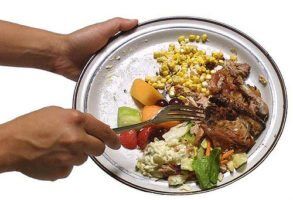

Environment
WRAP Responds To The Food Waste Recycling Action Plan
On 7th July, England’s first action plan was launched by WRAP to increase the quantity and quality of both domestic and commercial food waste recycling.
This initiative was developed together with local authorities, collectors, waste treatment operators and trade bodies from across the country, The Food Waste Recycling Action Plan aims to encourage greater collaboration across the supply chain.
Presented as a five-step roadmap, the document identifies common barriers to food waste recycling and details collaborative solutions to overcoming these issues. Actions are split across the supply chain, with a lead body given responsibility for the delivery of each.
Commenting on the plan, Philip Simpson, commercial director at ReFood, said: “Forward-thinking initiatives, such as The Food Waste Action Plan, demonstrate real commitment from across the industry to help our environment and boost our economy. Despite considerable efforts, more than 14 million tonnes of food is still wasted across the UK every year – 40% of which is said to be completely avoidable. This figure is one which must be lowered and any initiatives launched to tackle the issue head-on should be wholeheartedly commended.
“Since the launch of ReFood’s Vision 2020: UK roadmap to zero food waste to landfill report, which identified the true scale of the UK’s food waste crisis and provided comprehensive guidance to eliminate food waste to landfill, significant progress has already been made to minimise food waste and implement more sustainable alternatives to general waste disposal.
“In Scotland, Wales and Northern Ireland, for example, stringent legislation is now in place to prevent food waste from ending up in landfill, which has seen recycling rates soar and resulted in significant benefits on an economic level. What’s more, numerous businesses from across the supply chain – the likes of Sainsbury’s, QHotels and The Savoy, for example – have taken matters into their own hands and introduced self-policing ‘zero waste’ standards to realise the benefits of recycling food waste.
On the whole, however, England is still lagging far behind and this is simply down to a lack of commitment from those in power.
“Food is a highly valuable resource and one which mustn’t be squandered, yet without clear guidance from a government level or legislation implemented on a national scale, we will continue to tread water and fail to realise the benefits available.
“In fact, if the UK was to successfully achieve zero food waste to landfill by 2020, we could see greenhouse gases reduced by up to 27 million tonnes, with over 1.3 million tonnes of valuable nutrients returned to the earth each year and savings for the food manufacturing industry of up to £2bn. This said, unless we implement firm legislation, achieving these figures will not be achievable – relying on informal guidance and optional strategies simply isn’t enough.
“The Food Waste Recycling Action Plan is undoubtedly another positive step in the right direction and I personally hope it is seen as a clarion call by businesses and consumers to change behaviours when it comes to recycling food waste.
“In the long-term, however, identifying issues and encouraging best practice isn’t enough. At ReFood, we believe that a government-level ban on all food waste to landfill is essential. From every part of the food chain we need a strict commitment to prioritising recycling and preventing unnecessary waste. A ban on all food waste would not only deliver this, but also provide significant economic and environmental benefits.”


 Environment12 months ago
Environment12 months agoAre Polymer Banknotes: an Eco-Friendly Trend or a Groundswell?

 Features11 months ago
Features11 months agoEco-Friendly Cryptocurrencies: Sustainable Investment Choices

 Features12 months ago
Features12 months agoEco-Friendly Crypto Traders Must Find the Right Exchange

 Energy11 months ago
Energy11 months agoThe Growing Role of Solar Panels in Ireland’s Energy Future





























